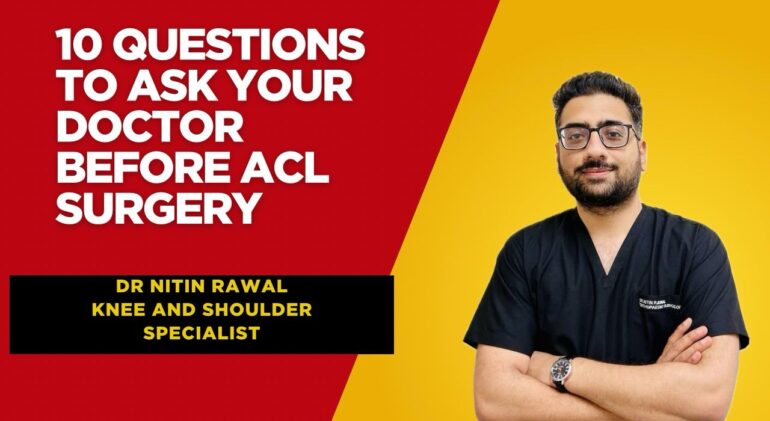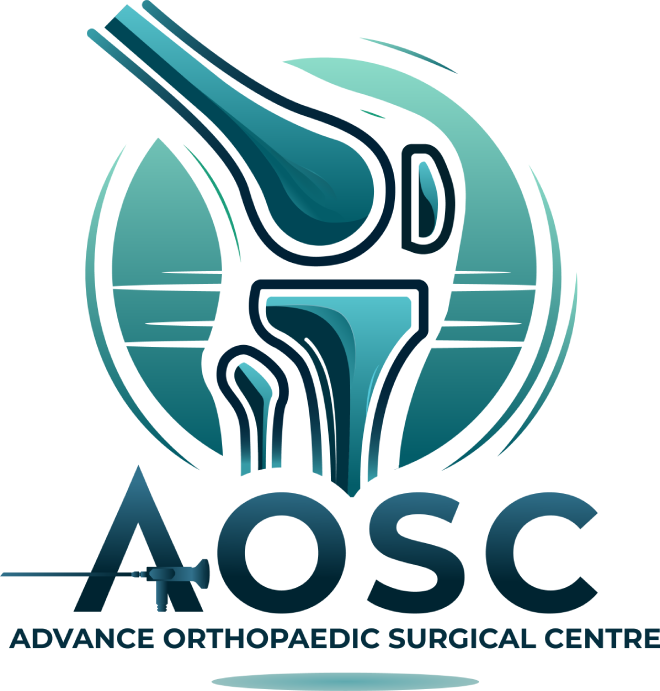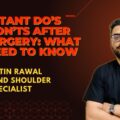
10 Questions to Ask Your Doctor Before ACL Surgery
When facing anterior cruciate ligament (ACL) surgery, it’s essential to make an informed decision about the procedure, its outcomes, and your recovery plan. Dr. Nitin Rawal, a leading orthopedic surgeon in Delhi NCR, understands the importance of patient education. Here are the top 10 questions you should ask your doctor before undergoing ACL surgery to ensure you’re fully prepared.
1. Do I Really Need ACL Surgery?
Not everyone requires ACL reconstruction. Individuals who are willing to make lifestyle changes and avoid activities that cause recurrent instability can lead a normal life without surgery. However, those who wish to return to sports typically need ACL reconstruction.For non-operative treatment, an important prerequisite is that the patient should not experience recurrent instability
2. What Are the Different Types of ACL Surgery?
A. Primary ACL Repair
In this procedure, the damaged ACL is arthroscopically repaired and reattached to its footprint using anchors. This technique is suitable only for fresh injuries, as chronic tears lack the healing potential due to degeneration of the ACL stump over time.
Indications for Primary ACL Repair:
* ACL avulsion injuries
* Sub-synovial stretch injuries
* Partial ACL tears
* Pediatric patients
B. ACL Augmentation
ACL has 2 bundles, anteromedial bundle and posterolateral bundle. This procedure is done when only one bundle is torn and other is intact. Procedure is done arthroscopically using one hamstring graft. We recommend FiberTape augmentation with hamstring graft.
C.ACL Reconstruction
This is also an arthroscopic procedure, here ACL is reconstructed using
hamstring graft (most commonly used). There are plenty of methods in ACL reconstruction.
But we recommend ALL inside ACL reconstruction with FiberTape internal bracing using
single hamstring graft.
Advantages of ALL inside ACL reconstruction with FiberTape internal bracing
– Very minimal post-operative pain.
– post-operative knee bending – 90 degrees first day.
– Excellent stability if knee.
– Fast return to sports activity.
– Confidence level was achieved very early.
There are two main types of ACL reconstruction:
•Autograft: Using your own tissue (e.g., hamstring,patellar tendon, peroneus longus, quadriceps ).
•Allograft: Using donor tissue.
3. What Are the Risks and Complications of ACL Surgery?
All surgeries come with some level of risk, and ACL surgery is no exception. However, the risks associated with ACL reconstruction are minimal, as the procedure is performed arthroscopically, requiring only small incisions.
We use regional anesthesia, which is considered highly safe. Potential risks include bleeding, knee pain or stiffness, reduced range of motion, wound healing issues, and infection. However, these complications are extremely rare.Overall, ACL reconstruction is a relatively safe procedure, and there is no need to fear undergoing it. Understanding these risks will help you weigh the benefits and prepare for possible complications.
4. When Does Physiotherapy Begin?
With ALL-Inside ACL Reconstruction using FiberTape internal bracing, physiotherapy begins immediately after the anesthesia wears off.
* On the first postoperative day, knee bending is initiated, allowing up to 90 degrees of flexion.
* You will be permitted to walk using a walker, with weight bearing as tolerated.
* Most patients can go home on the same day of surgery.
Ice packs can be used to reduce swelling, and physiotherapy will play a crucial role in strengthening the muscles around the knee and ensuring a smooth recovery.
5. What Will My Recovery Timeline Look Like?
Recovery varies depending on the individual and surgery type. Typically, full recovery can take 6 to 12 months. Ask about specific milestones, such as when you can walk, return to work, or resume sports.
6. What Can I Do to Prepare for Surgery?
Pre-surgery preparation can significantly affect your recovery. Your doctor might recommend strengthening exercises, quitting smoking, or stopping certain medications.
7. How Long Will the Surgery Take, and What Is the Procedure Like?
Understanding the surgical process can ease your anxiety. Ask about the duration of the procedure, anesthesia type, and what to expect during and after surgery.
8. What Happens If ACL Surgery Is Delayed?
The impact of delaying ACL surgery depends on several factors, including age, pre-injury sports participation, and the degree of anterior instability.
* Younger individuals are more likely to experience recurrent instability.
* Active participation in sports requires joint stability, making surgery essential for those with instability.
If surgery is delayed in cases of existing instability, it can lead to progressive damage:
* Femoral cartilage and meniscal damage may occur over time.
* This can eventually result in osteoarthritis accompanied by persistent knee pain in the following years.
Timely surgery is crucial to prevent long-term complications and ensure optimal joint health.
9. What Kind Of An Implant Will Be Used During Surgery?
During ACL reconstruction, we use a hamstring/peroneus/quadriceps graft with the ALL-Inside technique and FiberTape internal bracing or conventional ACL reconstruction using loop and PEEK Screw depending on patient requirements and financial constraints . Implants from reputed international companies like Arthrex, Stryker, Conmed (USA), and Smith & Nephew (UK) are used for their superior quality. Femur-side graft fixation is done with an adjustable TightRope, while tibial-side fixation involves a TightRope loop, ABS button, and SwiveLock anchor. FiberTape is used for internal bracing to ensure excellent stability and long-term results.
10. What Costs Are Involved in ACL Surgery?
Discuss the financial aspects, including surgery costs, physiotherapy sessions, follow-up visits, and whether your insurance covers the procedure. Transparency will help you plan accordingly.
Why Choose Dr. Nitin Rawal for ACL Surgery?
Dr. Nitin Rawal, a renowned orthopedic surgeon in Gurgaon , specializes in ACL reconstruction and other sports injury treatments. With extensive experience, cutting-edge techniques, and a patient-first approach, he ensures the best outcomes for his patients.
Conclusion
Asking the right questions before ACL surgery empowers you to make informed decisions and ensures a smooth recovery process. For expert consultation and care, book an appointment with Dr. Nitin Rawal, Gurgaon ’s trusted orthopedic surgeon.




